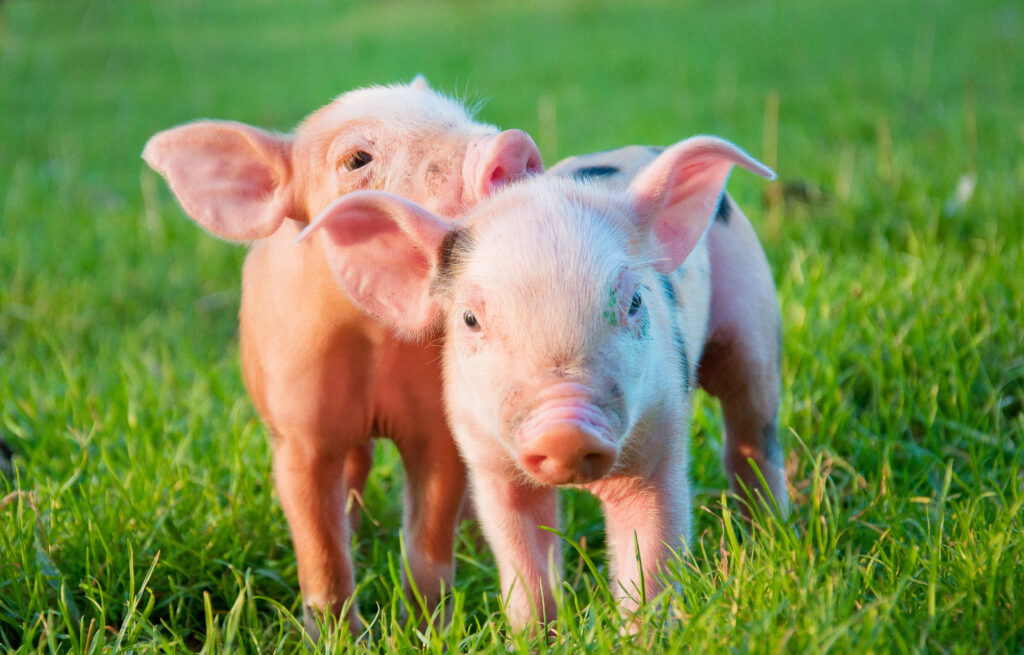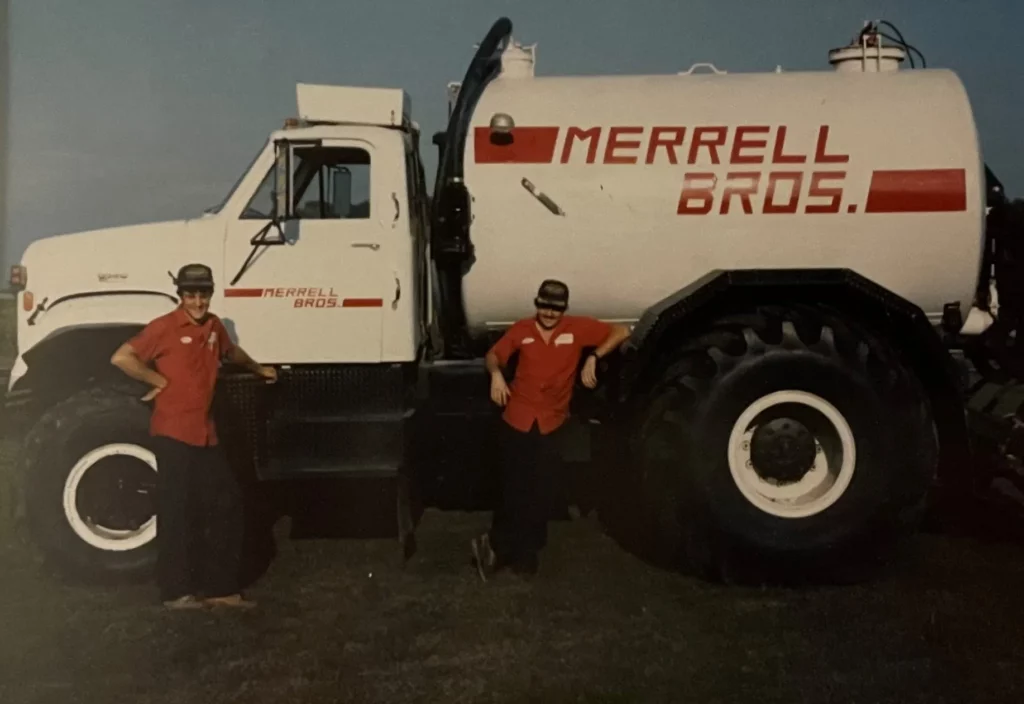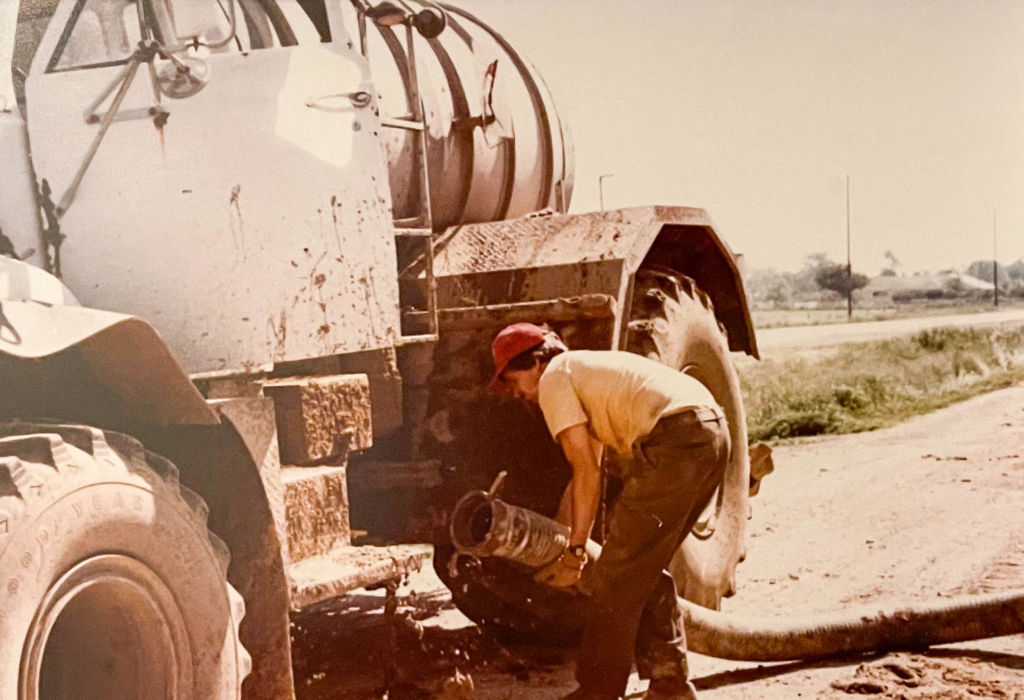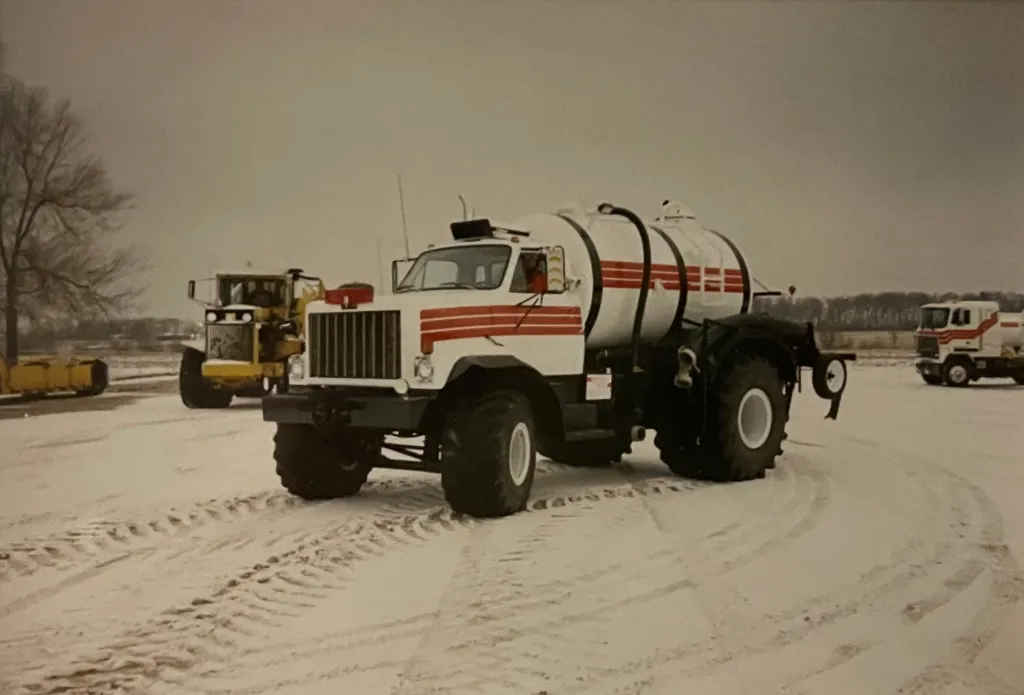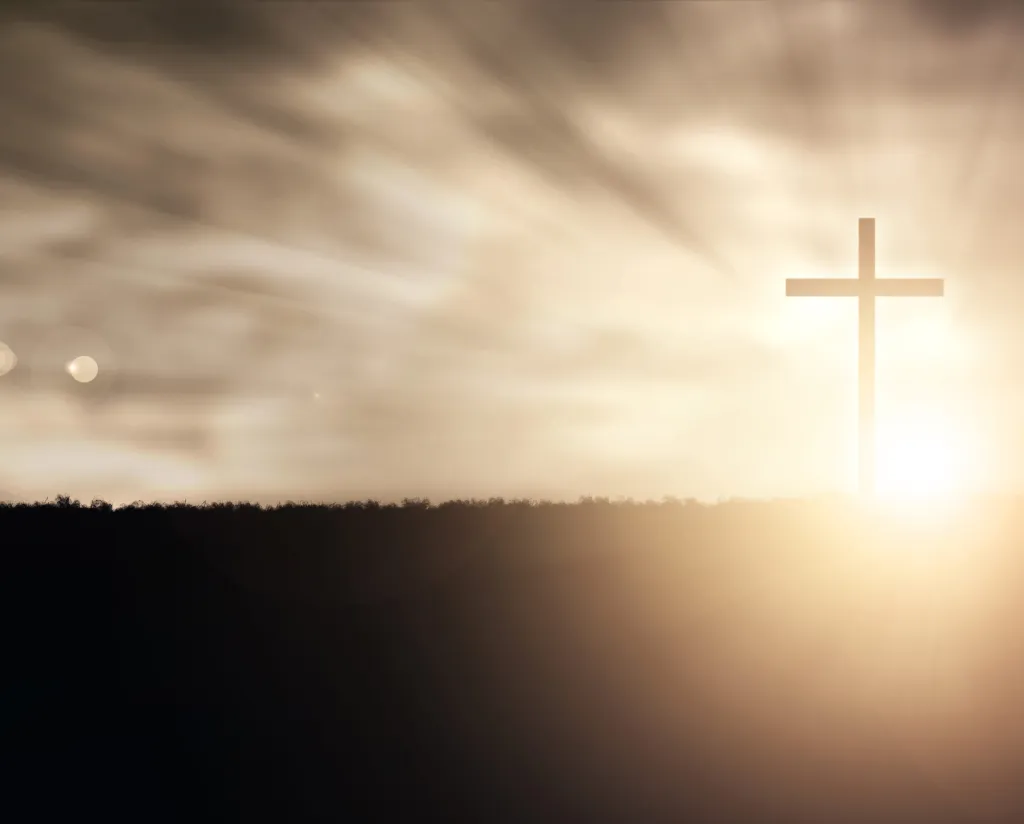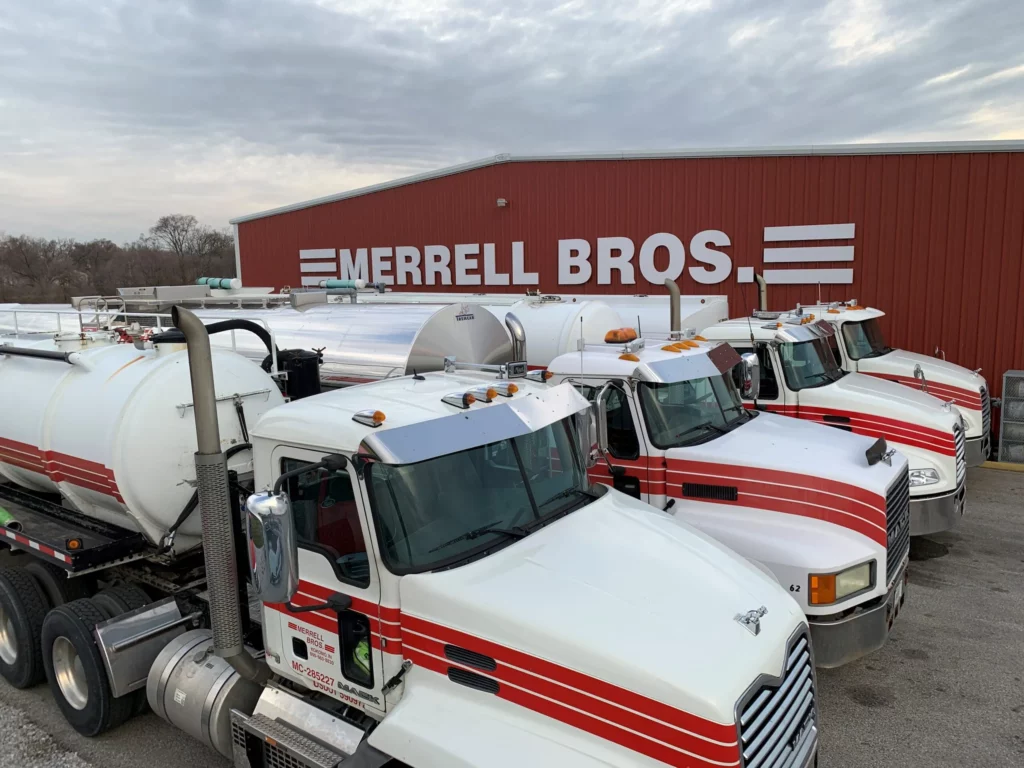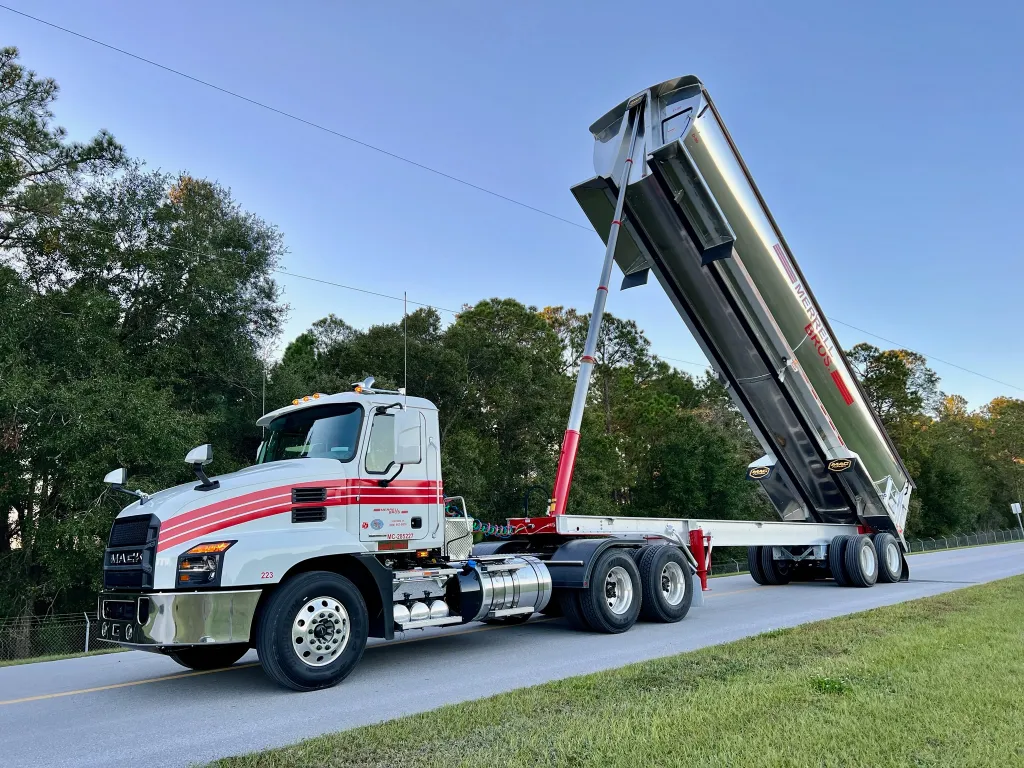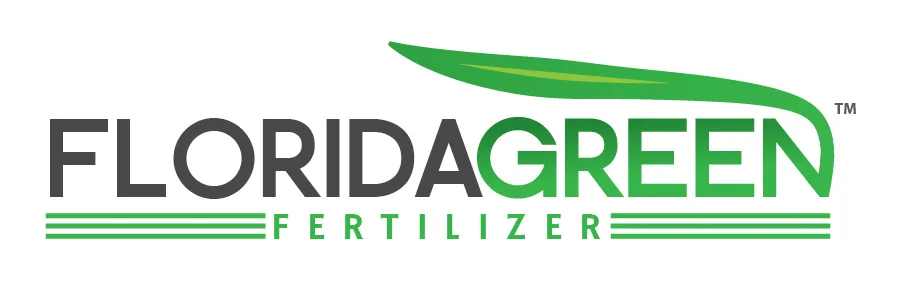Company History
Ted and Terry Merrell were each given one female pig when they were young teenagers by their father. From that day, their first 50/50 business partnership venture was started, and capitalism in its simplest form began as “Merrell Bros.”. Early in their careers, they realized that dealing with hog manure waste was a continual challenge. As the age of confinement hog barns began, barns where hog manure was beneath the barn in hog pits popped up across the state, and area farmers developed a need to have the hog pits pumped out and land applied. This meant long hours of driving a tractor and spreader, pumping the waste out of the barns, and land applying it onto nearby farm ground. Realizing this need, they took a gamble and leveraged everything they had (with the help of their father) on their first high flotation spreader truck. By using a high flotation spreader truck, they could spread the waste quicker and at a lesser cost. With their entire assets pledged and everything on the line, they were “all in” and decided to open a side business of pumping manure for other farmers. Desperate for more business and the growth, they agreed to help a local contractor who had a contract with a municipality to pump out a city lagoon. The municipal (city) market provided some great opportunities for Merrell Bros., Inc. to expand, but both brothers were young “kids” fresh out of school. They needed a competitive advantage and consequently slashed their bid prices. Ted & Terry were willing to haul and land apply for about $10.00 per load, hoping to get their foot in the door with new municipal customers. After assisting a contractor on their first municipal project in ‘85, Ted & Terry bid on their first municipal contract with the City of West Lafayette, Indiana. Ted Merrell states that they had one truck, two very old 1955 Butler tankers, and a whole lot of energy when they bid on that contract. When they were the apparent low bidder, the mayor of West Lafayette was a little skeptical of this new, young startup company, so she wanted to come out for a site visit. At that time, Ted & Terry had a hog barn that was built in the shape of a horseshoe. Inside that horseshoe, they had built a very small, two room, make-shift office. For the duration of the mayor’s visit, the classic saying “You never get a second chance to make a first impression” was playing in the back of their minds. The mayor must have seen something in Ted and Terry that day because after the meeting, she stated that she was impressed, and they were going to recommend to the board to award Merrell Bros., Inc. the contract. Today, Merrell Bros., Inc. still proudly holds that contract. In 1988, the City of Lafayette Indiana came up for bid. The day before the bid, Ted and Terry had two bid prices and could not decide which number to use. They decided to pray together and asked God to help them decide by flipping a coin. If it landed on heads, they would go with the lower price, and if it was tails, they would go with the higher price. The difference in these two prices was only a few pennies. After they prayed, they flipped the coin and it was heads, so they used the lower price. The next day at the bid opening, they opened the bids up, and yes, you guessed it, they were the low bidder only by pennies. We opened IDS to diversify our company and be a more full-service provider for the Indianapolis area. IDS offers disposal solutions for biosolids, septage, greywater, leachate, food by-products, and other non-hazardous wastes. Merrell Bros. opened our Florida Division in 2009. We offer dewatering services, biosolids transportation and water treatment services throughout the state of Florida. After we had IDS up and going, Merrell Bros. wanted to dive into another market. We conducted a lot of market research, and we decided to open our last disposal facility in St. Louis, MO. In May 2018, Merrell Bros. opened FloridaGreen. It’s a state-of-the-art 140,000 sq. ft. facility in Pasco County, FL. It incorporates two technologies: solar greenhouse drying and oven pasteurization. FloridaGreen takes materials from wastewater facilities all over the state.Timeline

